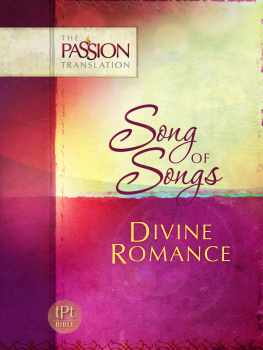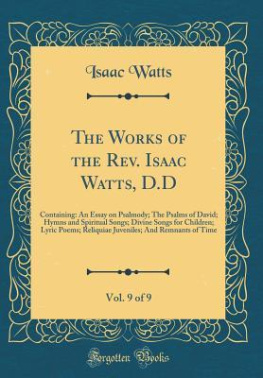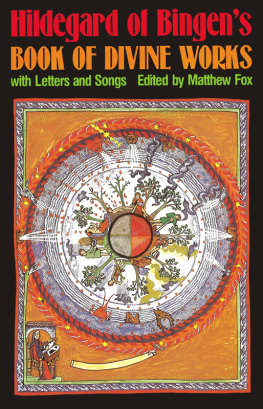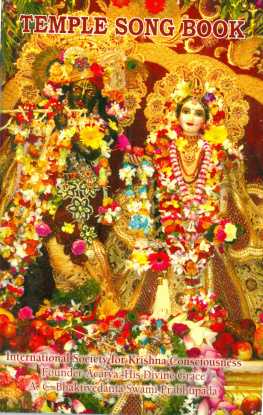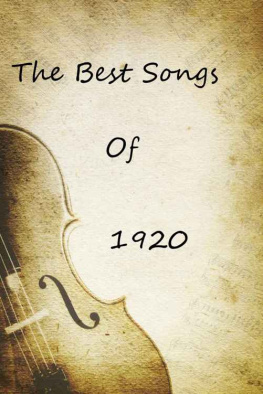ROUTLEDGE LIBRARY EDITIONS: IRAN
THE DIVINE SONGS OF ZARATHUSHTRA
THE DIVINE SONGS OF
ZARATHUSHTRA
D. J. IRANI
With an introduction by
RABINDRANATH TAGORE
Volume 21
First published in 1924
This edition first published in 2011
by Routledge
2 Park Square, Milton Park, Abingdon, Oxon, OX14 4RN
Simultaneously published in the USA and Canada
by Routledge
270 Madison Avenue, New York, NY 10016
Routledge is an imprint of the Taylor & Francis Group, an informa business
1924 George Allen & Unwin Ltd.
Printed and bound in Great Britain
All rights reserved. No part of this book may be reprinted or reproduced or utilised in any form or by any electronic, mechanical, or other means, now known or hereafter invented, including photocopying and recording, or in any information storage or retrieval system, without permission in writing from the publishers.
British Library Cataloguing in Publication Data
A catalogue record for this book is available from the British Library
ISBN 13: 978-0-415-57033-6 (Set)
eISBN 13: 978-0-203-83010-9 (Set)
ISBN 13: 978-0-415-61448-1 (Volume 21)
eISBN 13: 978-0-203-83024-6 (Volume 21)
Publishers Note
The publisher has gone to great lengths to ensure the quality of this reprint but points out that some imperfections in the original copies may be apparent.
Disclaimer
The publisher has made every effort to trace copyright holders and would welcome correspondence from those they have been unable to trace.
THE DIVINE SONGS OF ZARATHUSHTRA
BY
D. J. IRANI
WITH AN INTRODUCTION
BY
RABINDRANATH TAGORE
LONDON : GEORGE ALLEN & UNWIN LTD. RUSKIN HOUSE, 40 MUSEUM STREET, W.C. 1 NEW YORK : THE MACMILLAN COMPANY
First published in 1924
(All rights reserved)
Printed in Great Britain by
UNWIN BROTHERS, LIMITED, LONDON AND WOKING
DINSHAH JIJIBHAI IRANI.
(A TRIBUTE OF ESTEEM AND AFFECTION)
Much has been written of late about Dinshah Irani; and his public career is sufficiently well known to the community and so it need not be given again here. Born in very moderate wordly circumstances he rose to become a comparatively rich man by sheer force of his intellect and of his sterling abilities. It was not so much the wealth he earned or the position which he won for himself in the community that gained him the deep esteem of all who knew him. To know him was to learn to esteem him, and more intimate contact produced an affection which would defy what we call death.
The man Dinshah it was who won this high regard from all who had the good fortune to work with him. Clever and successful lawyer though he was, he never forgot the humanity in others. It was to this he appealed and in most cases he appealed successfully. Of course wordly-minded people often called him unpractical or visionary, but this was exactly the quality that was most esteemed in him by all his freinds. Schemers did, indeed, utilise this trait in him for their own benifit and often left him in difficulties. But Dinshah had much deep faith in the innate goodness of humanity and in the divinity in man that he refused to follow any prudent advice.
This faith in the goodness of humanity was but another aspect of his utter trust in the Ahura-Mazda. He regarded himself as the servant of the Almighty sent into the world to achieve some definite task. His wealth, his position, his learning, all the powers of his mind and of his body he regarded as granted to him in trust as it were by God wherewith he might serve his community and his country. He never spared himself when duty called, never waited to be approached by others. He saw his work straight ahead and did it. A true servant of God, gentle and unassuming, he did everything in His Name.
An event of his life, which is typical of the man, might be narrated here. I have heard it from his own lips. He was lying dangerously ill in a hospital in Europe after an operation. His life was despaired of and he felt that he was too young to die, he felt he had not done enough good in that short life. So he breathed an inward prayer to God and solemnly vowed to dedicate whatever span was granted him to the service of his Faith. The prayer was heard and he recovered. And nobly did he fulfil his vow. Very shortly after his recovery, while still in Europe, he came into contact with Poure Davoud. This meeting he told me, he looked upon as the answer from God to his prayer. He saw the way of serving the Faith of Zarathushtra opening out before him. From that moment he never wavered but went straight to the fulfilment of his vow. It was through Poure Davoud that modern Iran heard once again of the glorious Message of Zarathushtra. It was Poure Davoud that roused with his inspiring verses the new-born Iranism, the pride of the race. It was Dinshah Irani who gave to Poure Davoud the help and the freedom to enable him to resuscitate and revivify the ideals of ancient Iran. Thus did Dinshah Irani fulfil his vow.
Such was Dinshah Irani, a faithful servant of Ahura-Mazda. He lived as a Zarathoshti should live, he held aloft the ideale of his race and of his faith. He was a silent, efficient worker, he never cared whether he was praised or blamed. His concern was his work, the result he left in the hands of God. He has gone ahead of so many of his freinds. His departure has left a deep gap in the lives of many of us. But his memory and the sweetness of his presence are still vivid with us. The lesson he taught us of how a Zarthoshti should live will not be forgotten. Peace be to him, may his abode be in the realms of Light Eternal!
IRACH J. S. TARAPOREWALA
THE DIVINE SONGS OF
ZARATHUSHTRA
INTRODUCTION
THE most important of all outstanding facts of Iranian history is the religious reform brought about by Zarathushtra. He was the first man we know who gave a definitely moral character and direction to religion, and at the same time preached the doctrine of monotheism, which offered an eternal foundation of reality to goodness as an ideal of perfection. All religions of the primitive type try to keep men bound with regulations of external observances. These, no doubt, have the hypnotic effect of vaguely suggesting a realm of right and wrong; but the dimness of their light produces phantasms leaving men to aberrations. Zarathushtra was the greatest of all the pioneer prophets who showed the path of freedom to men, the freedom of moral choice, the freedom from blind obedience to unmeaning injunctions, freedom from the multiplicity of shrines which draw our worship away from the single-minded chastity of devotion. To most of us it sounds like a truism to-day when we are told that the moral goodness of a deed comes from the goodness of intention. But it is a truth which once came to a man like a revelation of light in the darkness and has not yet reached all the obscure corners of humanity. There are men we still see around us who fearfully follow, hoping thereby to gain merit, the path of blind formalisms, which have no living moral source in the mind. This will make us understand the greatness of Zarathushtra. Though surrounded by believers in magical rites, he proclaimed in those dark days of unreason, that religion has its truth in its moral significance, not in external practices of imaginary value; that it is to uphold man in his life of good thoughts, good words and good deeds.





